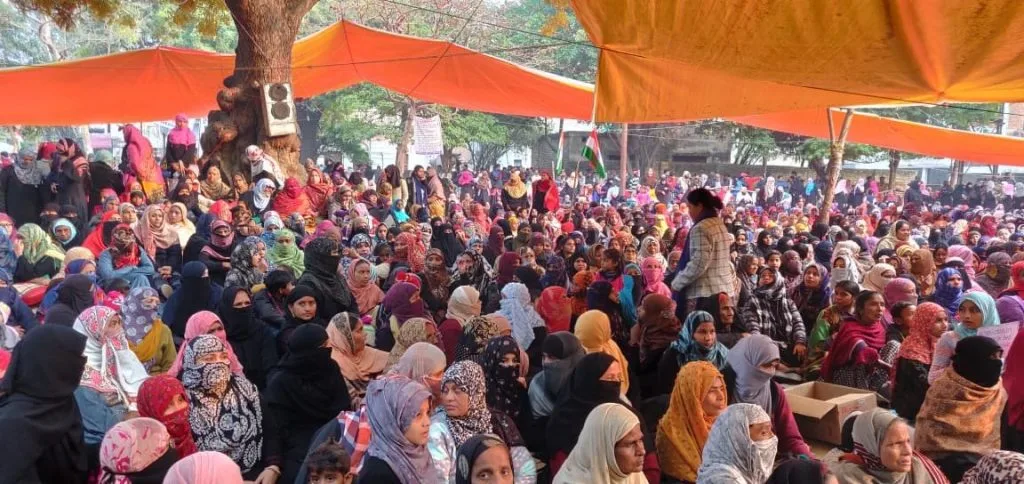Delhi’s Shaheen Bagh had emerged as the epicentre of anti-CAA protests last year where the protesters- mostly women – sat for more than three months.

AGENCIES / NEW DELHI
The Supreme Court today ruled that ‘No person or group can block public places or roads while exercising their right to protest or express dissent and authorities should remove such blockades’. It said that Protest should be at designated places.
“Right to peaceful protest is a constitutional right and it has to be respected. But that does not mean agitating people can adopt modes of protest that were used against colonial rulers during freedom struggle,” the Bench headed by Justice S K Kaul said in its verdict on petitions that had been filed against Shaheen Bagh protesters against CAA blocking a main road connecting Delhi and Noida.
We appreciate the right to peacefully protest and it can be (held) at designated places only,” the court stressed.
The protesters were removed in March after the COVID-19 lockdown was enforced but the court had chosen to keep the matter pending to clarify the legal position on the issue.
The top court noted that today social media can be used to create a highly polarised situation, which was seen at Shaheen Bagh protests.

Administration must keep such spaces free from obstructions and they should not wait to fire from court’s shoulder, it said.
Maintaining that people can’t claim an absolute right to protest, the Supreme Court had on September 21 reserved its order on petitions seeking certain guidelines to strike a balance between the right to protest and right to free movement and mobility.
The Bench which was seized of PILs filed by Amit Sahni, Shashank Deo Sushi and others against anti-CAA protesters blocking roads in Shaheen Bagh in Delhi — had said it would pass an order on the larger issue even as the protesters were removed by Delhi Police following imposition of COVID-19 lockdown.
The petitioners had urged the top court that “in the larger public interest, a decision may be taken.”
Solicitor General Tushar Mehta had asserted that the right wasn’t absolute.
Delhi’s Shaheen Bagh had emerged as the epicentre of anti-CAA protests last year where the protesters- mostly women and children – sat for more than three months.
The Shaheen Bagh protests had received worldwide attention and the Time Magazine honoured 82-year-old Bilkis dadi, the face of the movement, as one of the 100 “most influential people of 2020”.
They also protested against the police action against students at Jamia Millia Islamia who allegedly indulged in violence during initial protests against the law and opposed National Register of Citizens (NRC) and National Population Register (NPR).
But the protesters were forcibly removed by Delhi Police on March 24 after COVID19 lockdown was announced.
Notified on January 10, the CAA relaxes norms for grant of Indian citizenship by naturalization to Hindu, Sikh, Christian, Buddhist and Jain and Parsi victims of religious persecution from Pakistan, Afghanistan and Bangladesh who came to India before December 31, 2014. The top court had on January 22 refused to stay the operation of CAA and NPR.
